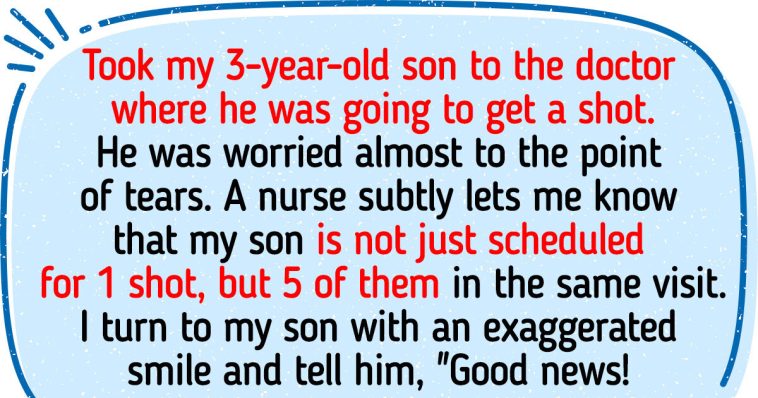Parents sometimes find themselves juggling several responsibilities, including those of chef, host, housekeeper, educator, nurse, and psychologist. When it comes to parenting, there is no manual that has all the solutions. The reason for this is because different problems call for different solutions.
But if you’re having trouble getting your kids to stop complaining and do what you want them to, reverse psychology might be the answer. Follow along as we reveal the method’s inner workings and the outcome of its efficacy.
Reverse psychology: how does it function?

Using the inverse of your desired behavior to influence another person is a basic example of reverse psychology. Then why? It’s no secret that children (and adults, but that’s beside the point) aren’t always compliant; sometimes, they just refuse to do what their parents ask of them.
Take the scenario when you ask your child to assist you with the dishes and they stubbornly refuse. Making it seem like they have a choice is a great way to avoid coming off as too dictatorial. “Do you want to help me clean the dishes or clean your bedroom?” They get a sense of autonomy because of this.
It’s not their parents but they who are making the call. That is, at least how they see it when they use reverse psychology. Because they are always discovering new things, toddlers benefit more from this method. You may give your youngster a prize when they’ve completed your request. Examples include extended periods of play or screen time.

We need to be more realistic. How can one implement reverse psychology? Here are four options for you to consider.
Play down your urge for them to consume something nutritious and green. Perhaps they would like their broccoli with a dollop of mayo. You would never attempt anything so terrible, and the combination is repulsive. Your remarks will likely have an effect on them, and they will likely eat their veggies simple.
Imagine for a second that your kid despises cleaning their teeth before night. Discouragement might backfire if you tell them not to do it. They could really enjoy making their own decisions instead of blindly following your instructions for once.
Is your child a chronic food waste? The next time you’re gathered at the table, give them a deadline and see whether they can complete it. Such a challenge would be taken very seriously, even by toddlers, who would attempt to disprove you.
Making a comparison between something else and your intended result is another excellent reverse psychology technique. To illustrate your point, you could simply tell your child, “Doing homework after playing is so boring, I don’t know why you would want to do it.” This will ensure that they do their homework before playing on their tablet.
In what situations is reverse psychology appropriate?

It takes skill to distinguish between controlling and reverse psychology. Tricks have their uses, but you shouldn’t rely on them constantly. The reason for this is because your child’s self-esteem might take a serious hit if you do it improperly and often.
Additionally, the effectiveness of reverse psychology is short-lived. Do you believe children will continue to fall for the same trick for an extended period of time? They will begin to see through your strategies as they mature and their intelligence grows. Keep it light and entertaining no matter how often you use it.
Proof from science that reverse psychology is effective.

Although there isn’t a mountain of data, two excellent tests demonstrate the value of reverse psychology. In such instance, adults specifically warned kids against playing with a particular item. That anything becomes yours the second it becomes untouchable is shown by the sudden intensity with which the children want to engage with that game.
In a separate study, participants aged 12 and above were each given a choice of five posters. One of them was informed later on that they were no longer accessible. Even though the youngsters weren’t going to choose it, the missing poster suddenly became quite attractive.
Parenting strategies to utilize instead of reverse psychology.

When other forms of reverse psychology fail to produce the desired results, it’s time to switch to an honest strategy.
Just why is your kid rejecting your requests? Perhaps they are just too lazy or bored to do their task immediately. Reassure them quietly that listening to you is critical. Another justification for doing things you’d rather not is the importance of the task at hand.
Most children have heard the phrases “clean your room!” or “Wash the dishes!” said at some point. But they lack politeness. You may express yourself politely and calmly while saying the same phrases.
Opt-in is key. Give them two or three choices instead of just one. When given the opportunity to choose, individuals get a sense of agency and self-assurance.
To add drama to their arguments, your youngster is acting out at times. In such a situation, a good and, who knows, entertaining argument could be just what the doctor ordered. Getting into an argument won’t solve anything.

You may want to broach the subject of decision-making and choice-making with your children when they’re a little older. I can see why kids would rather play a video game than complete their schoolwork. But what effect will it have on their future?
Show them that there is a trade-off for what they do. Achieving high marks requires extra study time if going to university is their long-term objective. The focus should be on their progress toward their future aspirations, not on your attempts to compel them to accomplish anything.
The importance of talkin’ and getting along.

Studies have shown that good parenting, which emphasizes open dialogue, may help you avoid using reverse psychology. So, how precisely does one define good parenting? Without deceiving them, you educate and encourage children to behave in a certain way. Furthermore, your unwavering love and care for them is evident. Here are five simple ways to start your path towards good parenting:
Praise: it has a dual purpose: it improves children’s self-esteem and helps them learn and grow.
When kids see how you behave and what you say, they will likely mimic it.
By putting oneself in their shoes and doing similarly, one may make someone feel valued and respected.
Providing a detailed account of their actions allows you to hold their interest for longer and demonstrates that you are paying close attention.
Fun: you congratulate them when they succeed and give them praise when they do well.
Reading about once-disapproved parenting techniques that are now largely admired should pique your interest if you like articles on psychology. For example, would you allow someone to hold your sobbing child?




